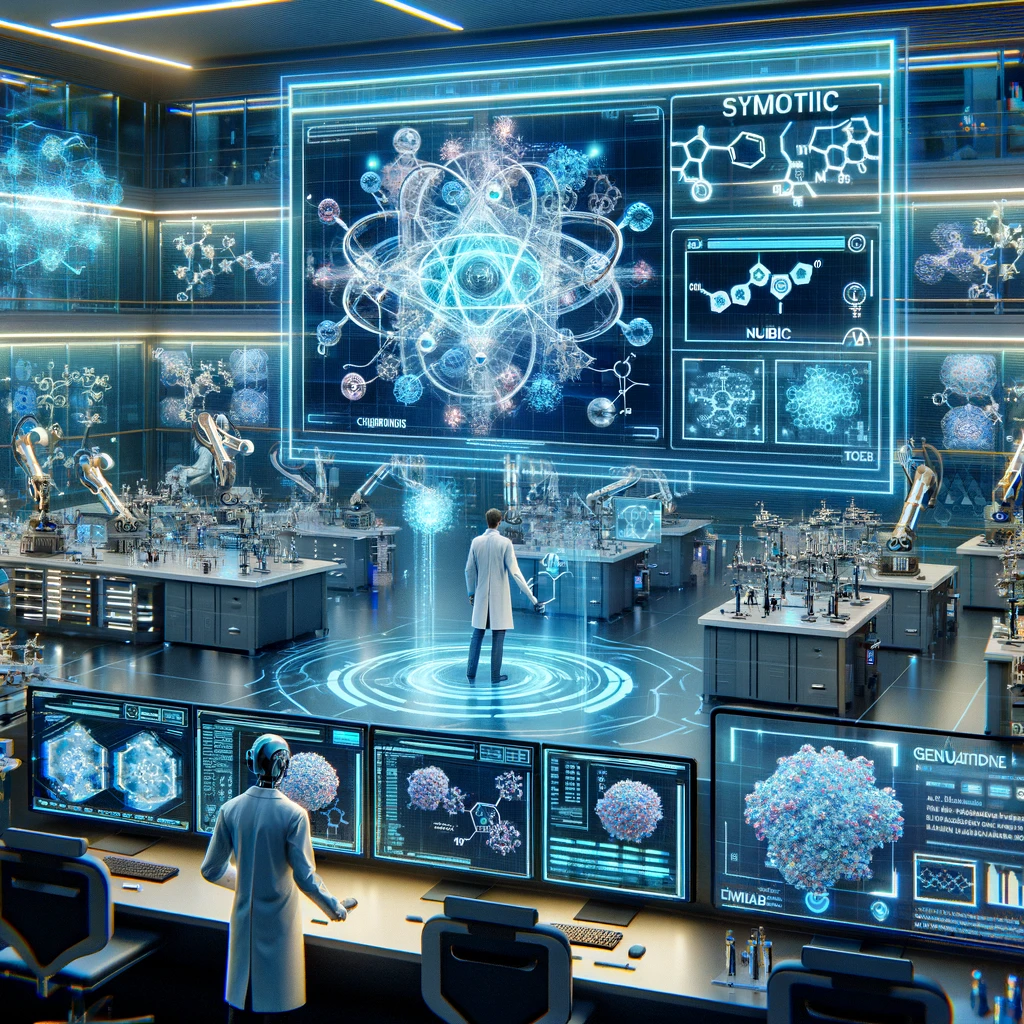
Artificial intelligence (AI) has been widely used in chemical synthesis and customization. Different AI methods have been categorized into symbolic AI, purely data-driven numeric AI, and hybrid AI. Symbolic AI involves translating a priori chemistry knowledge into encoded rules and instructions, while purely data-driven numeric AI utilizes machine learning without explicit domain knowledge. Hybrid AI integrates domain knowledge with data-driven techniques. These approaches have been applied in various areas such as structure-function relationship analysis, synthetic route planning, and automated synthesis. Additionally, generative machine learning models have been developed to generate novel molecules with bespoke properties and structural diversity, expanding the pharmacologically relevant chemical space. AI in chemistry goes beyond drug development and can assist with molecule synthesis and molecular property identification.
